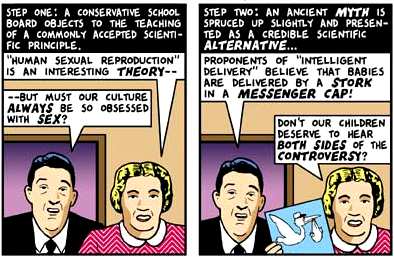"I hate to burst your bubble, but if it wasn't for muslim scholars studing their religion we wouldn't have science they came up with the idea of peer review which is what science is."
This is completely wrong. Islamic civillization had nothing to do with the modern practice of peer review:
see http://www.designinference.com/documents/05.02.resp_to_wein.htm
"One final word about peer-review. As Frank Tipler pointed out to me, the idea of peer-review as the touchstone for truth and scientific merit is actually a post Second World War invention. In physics, peer-reviewed journals were not the norm until after 1950. In Germany, during the "Beautiful Years" -- the period when quantum mechanics was being invented in the 1920s -- one of the leading German physics journals, Zeitschrift fur Physik, was not peer-reviewed: any member of the German Physical Society could publish there by simply submitting the paper. So, if you had a really wild idea, all you had to do to get it published was ask a member of the GPS to submit it for you. (If you were a member, you could of course submit for yourself.) Heisenberg published his paper on the Uncertainty Principle in this journal, and Friedmann published his paper on the Friedmann universe (now the standard cosmological model) in this journal. No peer-review. Lots of brilliant physics."
Furthermore, it is common misconception that Islamic scholars protected the ancient Greek scientific texts during the dark ages. While they did preserve some of these texts, many more were carefully saved by Irish monks, including many of the ancient Greek and Roman scientific treatises. In general, Islamic contributions to modern scientific thought are HIGHLY overrated.
